Saint Sava the Second of Serbia
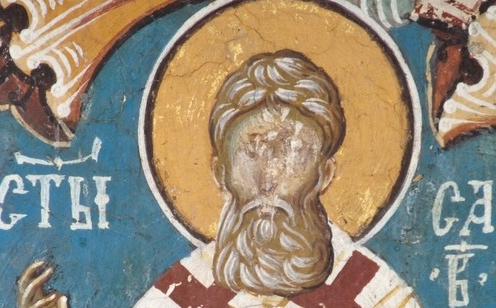 Saint Sava II (Serbian: Свети Сава II / Sveti Sava II; 1201–1271) was the third Archbishop of the Serbian Orthodox Church, serving from 1263 until his death in 1271. He was the middle son of King Stefan the First-Crowned of the Nemanjić dynasty and his Byzantine wife Eudokia Angelina. He had two brothers, Stefan Radoslav and Stefan Vladislav, and a sister, Komnena. Predislav took the monastic name of Sava, after his uncle, Saint Sava, the first Serbian Archbishop.
Saint Sava II (Serbian: Свети Сава II / Sveti Sava II; 1201–1271) was the third Archbishop of the Serbian Orthodox Church, serving from 1263 until his death in 1271. He was the middle son of King Stefan the First-Crowned of the Nemanjić dynasty and his Byzantine wife Eudokia Angelina. He had two brothers, Stefan Radoslav and Stefan Vladislav, and a sister, Komnena. Predislav took the monastic name of Sava, after his uncle, Saint Sava, the first Serbian Archbishop.
St. Photius the Patriarch of Constantinople
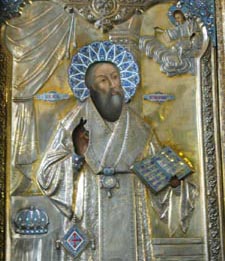 Saint Photius, Patriarch of Constantinople, “the Church’s far-gleaming beacon,” lived during the ninth century, and came from a family of zealous Christians. His father Sergius died as a martyr in defense of holy icons. Saint Photius received an excellent education and, since his family was related to the imperial house, he occupied the position of first state secretary in the Senate. His contemporaries said of him: “He so distinguished himself with knowledge in almost all the secular sciences, that it rightfully might be possible to take into account the glory of his age and compare it with the ancients.”
Saint Photius, Patriarch of Constantinople, “the Church’s far-gleaming beacon,” lived during the ninth century, and came from a family of zealous Christians. His father Sergius died as a martyr in defense of holy icons. Saint Photius received an excellent education and, since his family was related to the imperial house, he occupied the position of first state secretary in the Senate. His contemporaries said of him: “He so distinguished himself with knowledge in almost all the secular sciences, that it rightfully might be possible to take into account the glory of his age and compare it with the ancients.”
Michael, the young successor to the throne, and Saint Cyril, the future Enlightener of the Slavs, were taught by him. His deep Christian piety protected Saint Photius from being seduced by the charms of court life. With all his soul, he yearned for monasticism.
Holy, Righteous Simeon the God-Receiver
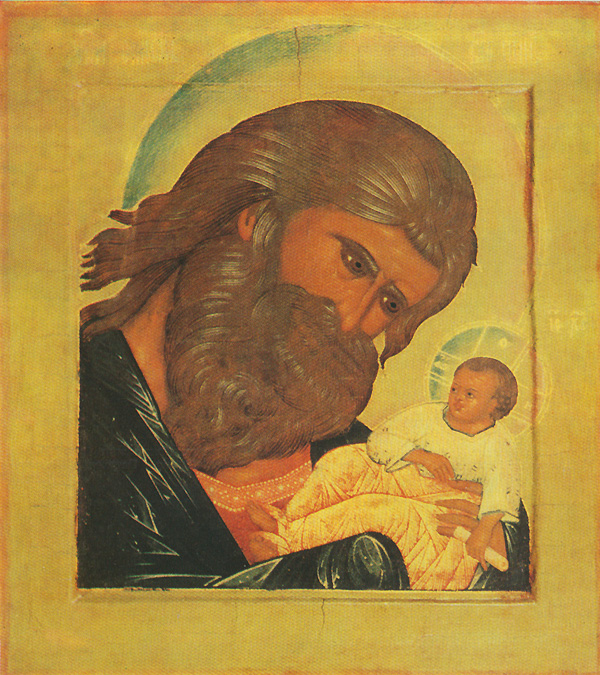 Righteous Simeon the God-Receiver was, according to the testimony of the holy Evangelist Luke, a just and devout man waiting for the consolation of Israel, and the Holy Spirit was upon him (Luke 2:25). God promised him that he would not die until the promised Messiah, Christ the Lord, came into the world.
Righteous Simeon the God-Receiver was, according to the testimony of the holy Evangelist Luke, a just and devout man waiting for the consolation of Israel, and the Holy Spirit was upon him (Luke 2:25). God promised him that he would not die until the promised Messiah, Christ the Lord, came into the world.
Ancient historians tell us that the Egyptian pharaoh Ptolemy II Philadelphus (285-247 B.C.) wished to include texts of Holy Scripture in the famous Library at Alexandria. He invited scholars from Jerusalem, and the Sanhedrin sent their wise men. The Righteous Simeon was one of the seventy scholars who came to Alexandria to translate the Holy Scriptures into Greek. The completed work was called “The Septuagint,” and is the version of the Old Testament used by the Orthodox Church.
Venerable Ephraim the Syrian
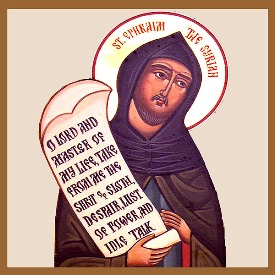 Saint Ephraim the Syrian, a teacher of repentance, was born at the beginning of the fourth century in the city of Nisibis (Mesopotamia) into the family of impoverished toilers of the soil. His parents raised their son in piety, but from his childhood he was known for his quick temper and impetuous character. He often had fights, acted thoughtlessly, and even doubted God’s Providence. He finally recovered his senses by the grace of God, and embarked on the path of repentance and salvation.
Saint Ephraim the Syrian, a teacher of repentance, was born at the beginning of the fourth century in the city of Nisibis (Mesopotamia) into the family of impoverished toilers of the soil. His parents raised their son in piety, but from his childhood he was known for his quick temper and impetuous character. He often had fights, acted thoughtlessly, and even doubted God’s Providence. He finally recovered his senses by the grace of God, and embarked on the path of repentance and salvation.
Once, he was unjustly accused of stealing a sheep and was thrown into prison. He heard a voice in a dream calling him to repent and correct his life. After this, he was acquitted of the charges and set free.
Venerable Macarius the Great of Egypt
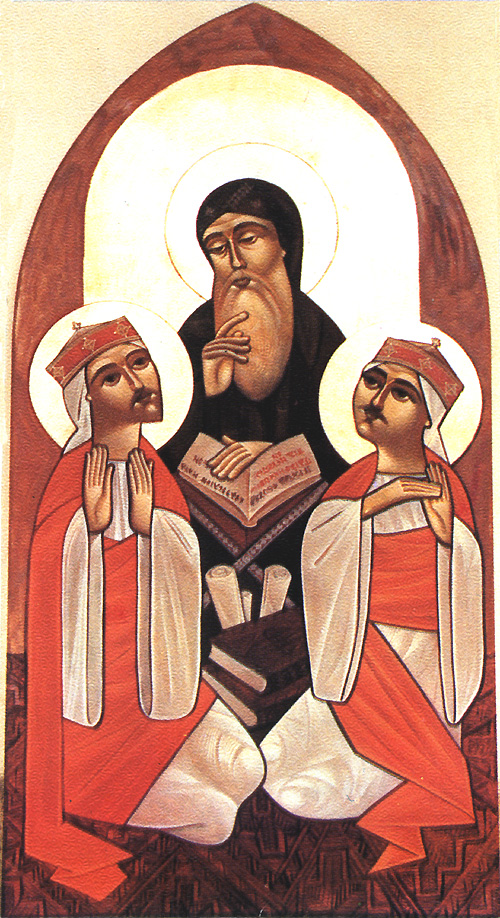 Saint Macarius the Great of Egypt was born in the early fourth century in the village of Ptinapor in Egypt. At the wish of his parents he entered into marriage, but was soon widowed. After he buried his wife, Macarius told himself, “Take heed, Macarius, and have care for your soul. It is fitting that you forsake worldly life.”
Saint Macarius the Great of Egypt was born in the early fourth century in the village of Ptinapor in Egypt. At the wish of his parents he entered into marriage, but was soon widowed. After he buried his wife, Macarius told himself, “Take heed, Macarius, and have care for your soul. It is fitting that you forsake worldly life.”
The Lord rewarded the saint with a long life, but from that time the memory of death was constantly with him, impelling him to ascetic deeds of prayer and penitence. He began to visit the church of God more frequently and to be more deeply absorbed in Holy Scripture, but he did not leave his aged parents, thus fulfilling the commandment to honor one’s parents.
Until his parents died, Saint Macarius used his remaining substance to help them and he began to pray fervently that the Lord might show him a guide on the way to salvation. The Lord sent him an experienced Elder, who lived in the desert not far from the village. The Elder accepted the youth with love, guided him in the spiritual science of watchfulness, fasting and prayer, and taught him the handicraft of weaving baskets. After building a separate cell not far from his own, the Elder settled his disciple in it.






